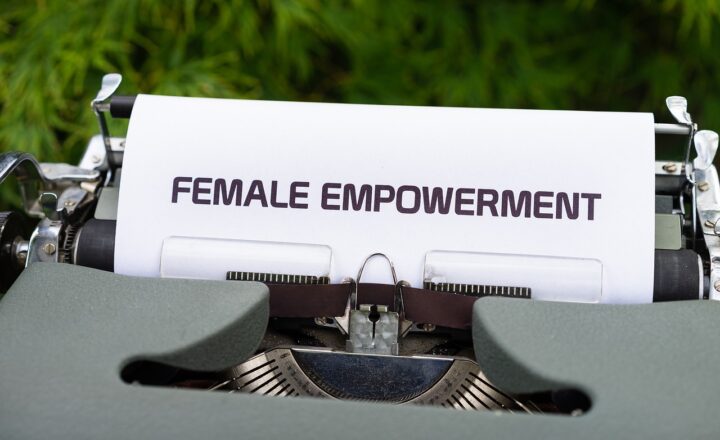Why Wonder Woman Is an Important Icon for Female Empowerment
November 16, 2024

Wonder Woman, created by William Moulton Marston in 1941, is more than just a comic book character or a superheroine; she is a cultural icon that embodies strength, resilience, and empowerment for women across generations. As one of the first female superheroes, Wonder Woman has paved the way for female representation in media and inspired countless individuals to champion the fight for equality and justice.
1. The Origin of Wonder Woman: A Symbol of Strength and Independence
Wonder Woman made her debut during a time when women were fighting for their rights and seeking greater independence. Created during the World War II era, her origin story roots her in the Amazonian culture, where women are portrayed as warriors, free from male dominance. The character was designed with qualities that contradicted traditional female stereotypes, including physical strength, intelligence, and compassion.
Wonder Woman was presented as a diplomat and a warrior, breaking through the gender norms of the time. Her character challenged the status quo, becoming not only a fighter but also a symbol of equality and empowerment for women. Her catchphrase, “I am Wonder Woman!” has inspired many to embrace their own identities and strengths, profoundly impacting women’s rights movements and discussions around gender equality.
2. Wonder Woman in Pop Culture: Beyond Comics
Over the decades, Wonder Woman has transcended comic books to become an essential figure in popular culture. The success of the 2017 film, starring Gal Gadot, reignited interest in the character and introduced her to a new generation. This film not only showcased thrilling action sequences and special effects but also emphasized themes of feminism and empowerment.
The phrase “Wonder Women” has become synonymous with empowered women, leading to conversations surrounding female representation in Hollywood and beyond. From merchandise to conventions, the influence of Wonder Woman is palpable, echoing a broader movement for inclusivity in media. Her character serves as a reminder that women can be heroes, leaders, and symbols of hope.
3. The Themes of Empowerment and Feminism
Wonder Woman is not just a superhero; she represents ideals central to feminism—independence, strength, and equality. The narratives surrounding her often highlight the duality women face—balancing traditional roles with empowerment and self-assertion.
In her tales, Wonder Woman battles oppressive powers, reflecting the struggles women face worldwide against patriarchy and systemic inequality. With her lasso of truth and unmatched fighting spirit, she stands as an advocate for justice, fairness, and authenticity. By embodying these traits, Wonder Woman challenges societal norms, inspiring women to confront their battles, large or small, whether they be in the workplace or personal lives.
4. Intersectionality and Representation: Wonder Woman for All Women
Wonder Woman serves as an important platform for discussing intersectionality within the feminist movement. While she is typically depicted as a white, butch character, various adaptations have introduced a more diverse range of portrayals. These varying interpretations invite discussions about how female empowerment can encompass women of all races, abilities, and backgrounds.
In recent years, comic books and films have expanded her diversity, resulting in a Wonder Woman who represents a wider spectrum of women and their experiences. From comics depicting her as a person of color to feminist writers offering new narratives, the evolution of Wonder Woman reflects the growing acknowledgement of intersectionality in modern discussions about empowerment and equality.
5. Encouraging Self-Confidence and Personal Growth
The impact of Wonder Woman extends beyond pop culture and activism; she promotes self-confidence and personal growth among women and girls. Young audiences often resonate with her character, inspiring the belief that they can achieve greatness, pursue their dreams, and stand up against adversity.
By embodying power and heroism, Wonder Woman encourages girls to step outside their comfort zones, chase their ambitions, and embrace their uniqueness. Her narrative teaches valuable lessons of resilience, urging women to believe in themselves and reject the limitations imposed by society. The empowerment spirit imbued in her character encourages discussions about mental health, body positivity, and self-acceptance.
6. The Future of Female Empowerment Through Wonder Woman
As we look towards the future, Wonder Woman will likely continue to evolve as a symbol of female empowerment. Her presence in mainstream media is more crucial than ever as movements for women’s rights, gender equality, and justice gain momentum worldwide. The ongoing conversations about representation in the comic book industry and media will further pave the way for characters that reflect the diversity of experiences women face.
Wonder Woman serves an important role in shaping new narratives while inspiring future generations of female heroes. As creators develop characters that break from traditional molds, the vibrant universe of superheroes will reflect more authentic, diverse representations of women. Ultimately, Wonder Woman will remain a pioneering icon for future female empowerment, leading the charge in advocating for equality and justice across the globe.
Conclusion
Wonder Woman is an enduring symbol of female empowerment, showcasing that women can lead, fight, and inspire. Through her journey from comic book pages to blockbuster films, she has proven to be an essential part of the feminist iconography, setting the foundation for discussions about gender equality and representation in media. By challenging societal norms and celebrating women’s capabilities, Wonder Woman has cemented her legacy as a powerfully evocative character who will continue to advocate for female empowerment for generations to come.






